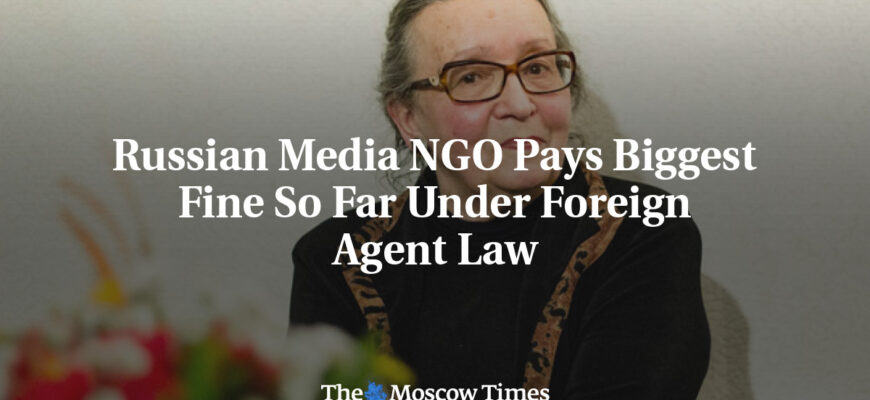As a new law takes effect in Russia this September, banning individuals and organizations designated as “foreign agents” from engaging in educational and enlightenment activities, a ripple of apprehension is spreading through the nation`s literary landscape. Publishers and booksellers find themselves navigating a murky legal terrain, questioning the fate of titles penned by these listed authors and the very nature of knowledge dissemination.
The Unclear Mandate: A Law Open to Interpretation
The core of the new regulation is, on the surface, seemingly straightforward: “foreign agents” are prohibited from teaching or conducting any “enlightenment activities” for both adults and children. However, the precise definition of “enlightenment activity” itself remains a point of considerable ambiguity. Initial interpretations from a co-author of the bill suggested it encompasses the dissemination of knowledge, experience, skill development, and the formation of values – a curiously broad definition that leaves much to legal interpretation. One might even muse that the act of reading itself, by its very nature, is an “enlightenment activity.”
Crucially, the law does not explicitly forbid the sale or distribution of books written by “foreign agents.” Yet, this absence of a direct prohibition has done little to calm the industry`s nerves. The fear among publishers and bookstores is that the new norms could be interpreted expansively, leading to unforeseen legal consequences. This anxiety has already prompted some establishments, such as Moscow`s “Phalanster” and St. Petersburg`s “Order of Words,” along with the publishing house “New Literary Review,” to initiate pre-emptive sales of such literature, seemingly clearing shelves before any official decree. A proactive, if somewhat panicky, measure in the face of uncertainty.
Publishers in Perilous Pondering
The confusion is palpable. Major players, including “Eksmo-AST,” one of Russia`s largest publishing groups, are actively seeking clarity from state bodies. As Evgeny Kapyev, CEO of “Eksmo-AST” and Chairman of the Russian Book Union`s International Cooperation Committee, noted, the situation is perplexing:
“We have a small number of books, perhaps two or three authors [on the list], but the issue concerns us too. We are currently sending a letter to state bodies asking if it`s possible to sell books after September 1st. Based on that, we will make a decision, because, based on the law, it`s unclear whether it can or cannot be done. One of our authors is Yulia Latynina*. Her research on Jesus Christ is quite good, so we need to sort this out.”
The industry`s hesitation is understandable. Without clear directives, the risk of misinterpretation falls squarely on their shoulders, compelling them towards caution, even if it means acting preemptively. This effectively transforms the law into an administrative sword of Damocles, hanging over every literary work.
The Chilling Effect: Self-Censorship Takes Hold
Beyond explicit authors, the new regulations cast a wider net. Concerns extend to books that merely mention or include comments from individuals or organizations designated as “foreign agents” or “undesirable.” Alexander Ivanov, founder and head of Moscow`s Ad Marginem publishing house, suggests this situation is not about direct prohibition but about fostering an environment of self-censorship:
“It seems to me that all this is being done to launch a mechanism of self-censorship, and so that publishing houses themselves start refusing to cooperate with foreign agents. Because physically tracking all mentions, quotes, and products of foreign agents is simply impossible, it seems to me. Especially when it comes to printed book products. 95% of what we publish is translated literature. We don`t have, I think, foreign agents as translators or authors. But this does not negate the fact that we are also included in this process of self-censoring. We are also now, due to complaints and denunciations, forced to remove something from sale. Some organizations, for example, Yale University, are defined as undesirable organizations, and Yale University Press is quite important for the academic environment.”
This reveals a perhaps unintended, yet highly effective, side effect: rather than direct state intervention, the ambiguity encourages entities to police themselves. This leads to a potentially broader suppression of content, as institutions err on the side of caution. The example of Yale University, a prominent academic institution, being labeled “undesirable” further highlights the expansive and concerning implications for intellectual discourse and the free flow of ideas.
The Legal Labyrinth and Future Outlook
Legal experts acknowledge the breadth of potential interpretations. Media lawyer Mikhail Khokholkov notes that while each case might be considered individually, the overall trend points towards broad application:
“The measures that book publishers or other companies that generally work with content are taking are aimed at preventing these measures. Somewhere there are apparently a lot of overcautious measures. But they are justified by the fact that companies do not want to take on unknown risks.”
The question of whether a simple quote or a brief review on a book cover constitutes “educational activity” remains largely unanswered, floating in a legal limbo. While theoretically, such mentions might only require appropriate labeling rather than outright removal, the practical application is yet to be seen. The coming months will undoubtedly shed more light on how vigorously these new regulations will be enforced and what the long-term impact will be on the accessibility of knowledge and the vibrancy of Russia`s publishing industry. For now, the literary world holds its breath, waiting to see if its next chapter will be one of clarity or continued convolution.
*Editor`s Note: Individuals designated as “foreign agents” by the Ministry of Justice of the Russian Federation are subject to specific legal restrictions and requirements.








